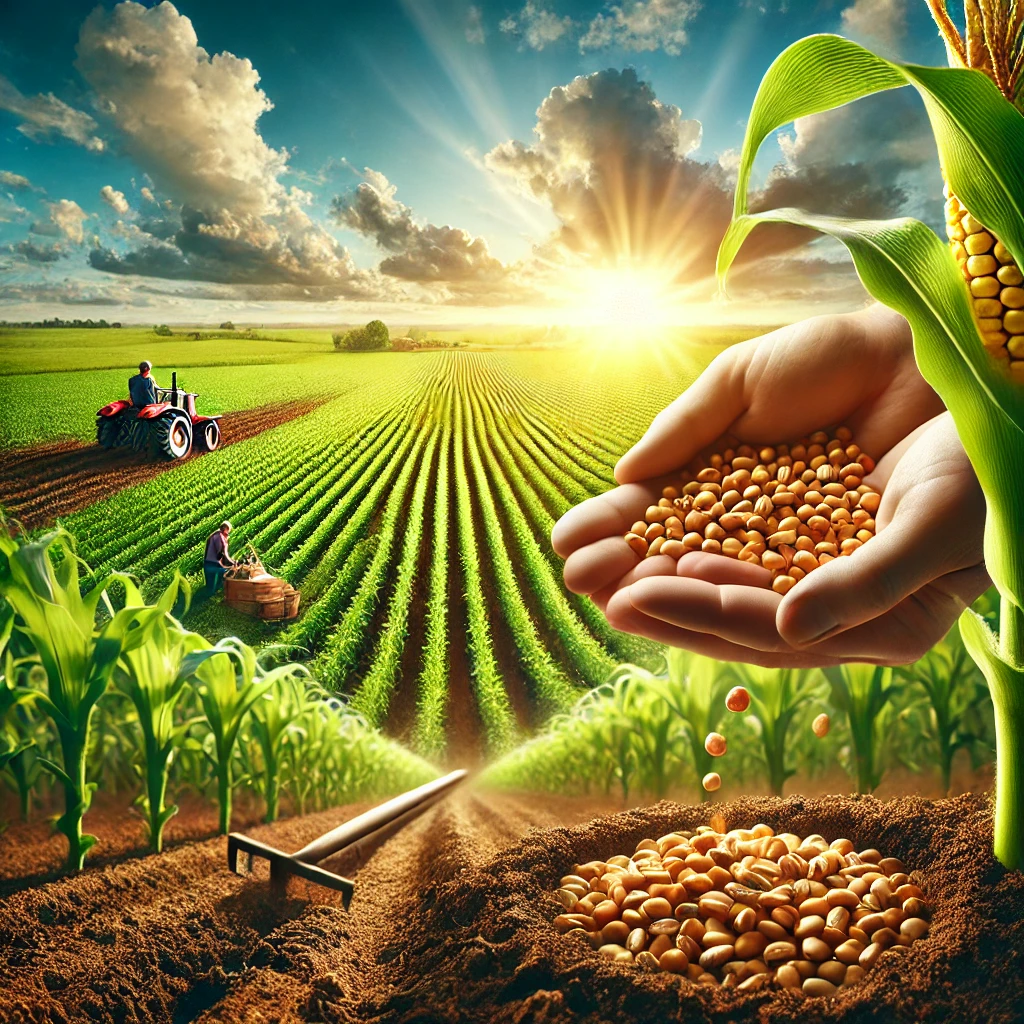Seeds are the starting point of agriculture. They determine the potential yield, disease resistance, and adaptability of crops to different environmental conditions. As global food demand rises, farmers must rely on high-quality seeds to ensure sustainable and profitable farming.
Why Seed Quality Matters
The success of a crop largely depends on the seed used. High-quality seeds offer several advantages:
1. Higher Germination Rates
Good seeds have higher viability, leading to uniform sprouting and better field coverage. This minimizes gaps in the field, ensuring optimal use of land and resources.
2. Resistance to Pests and Diseases
Modern seed varieties are bred to withstand common diseases and pests, reducing the need for excessive pesticide use. For example, certain maize hybrids are resistant to stem borers, a major threat to maize crops in many regions.
3. Improved Yield Potential
Better seed genetics mean better productivity. Farmers who use hybrid or genetically improved seeds often achieve higher yields compared to traditional seed varieties. This leads to increased food production and greater financial returns.
4. Adaptability to Climate Change
With unpredictable weather patterns, drought-resistant and climate-smart seed varieties have become crucial. These seeds can survive under harsh conditions, ensuring food security even in regions with erratic rainfall.
The Evolution of Seed Technology
Over the years, seed technology has advanced significantly. Some of the latest developments include:
- Hybrid Seeds: Created by cross-breeding plants to enhance desirable traits like higher yields and resistance to diseases.
- Genetically Modified (GM) Seeds: Engineered to be resistant to pests, herbicides, or adverse weather conditions.
- Seed Coating Technology: Seeds treated with bio-fertilizers, growth stimulants, and pest deterrents to boost early-stage growth.
Sustainable Farming Through Quality Seeds
Using high-quality seeds contributes to sustainable agriculture by:
🌱 Reducing dependency on chemical pesticides and fertilizers.
🌍 Improving land-use efficiency and reducing deforestation for new farmland.
💧 Enhancing water-use efficiency through drought-resistant varieties.
Conclusion
For any farmer, investing in high-quality seeds is the first step toward a successful harvest. As agriculture continues to evolve, adopting improved seed varieties will be crucial in feeding the growing global population while preserving natural resources.
What are your thoughts on the role of quality seeds in agriculture? Share your experiences in the comments!




